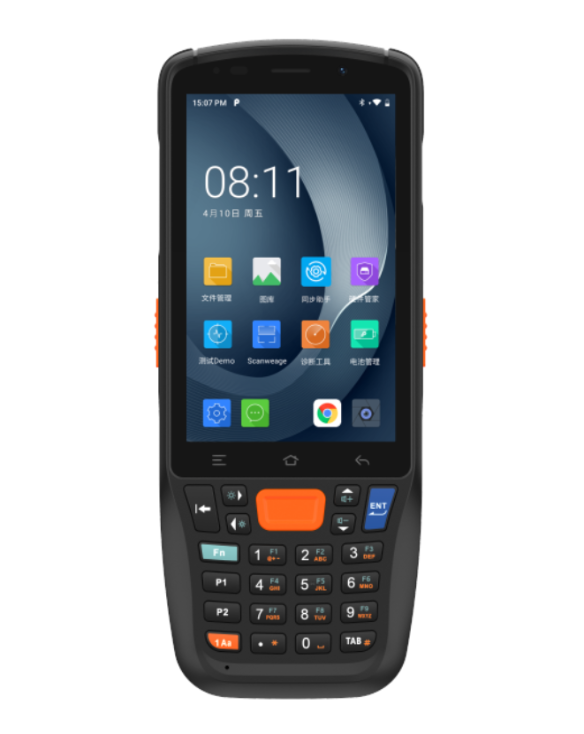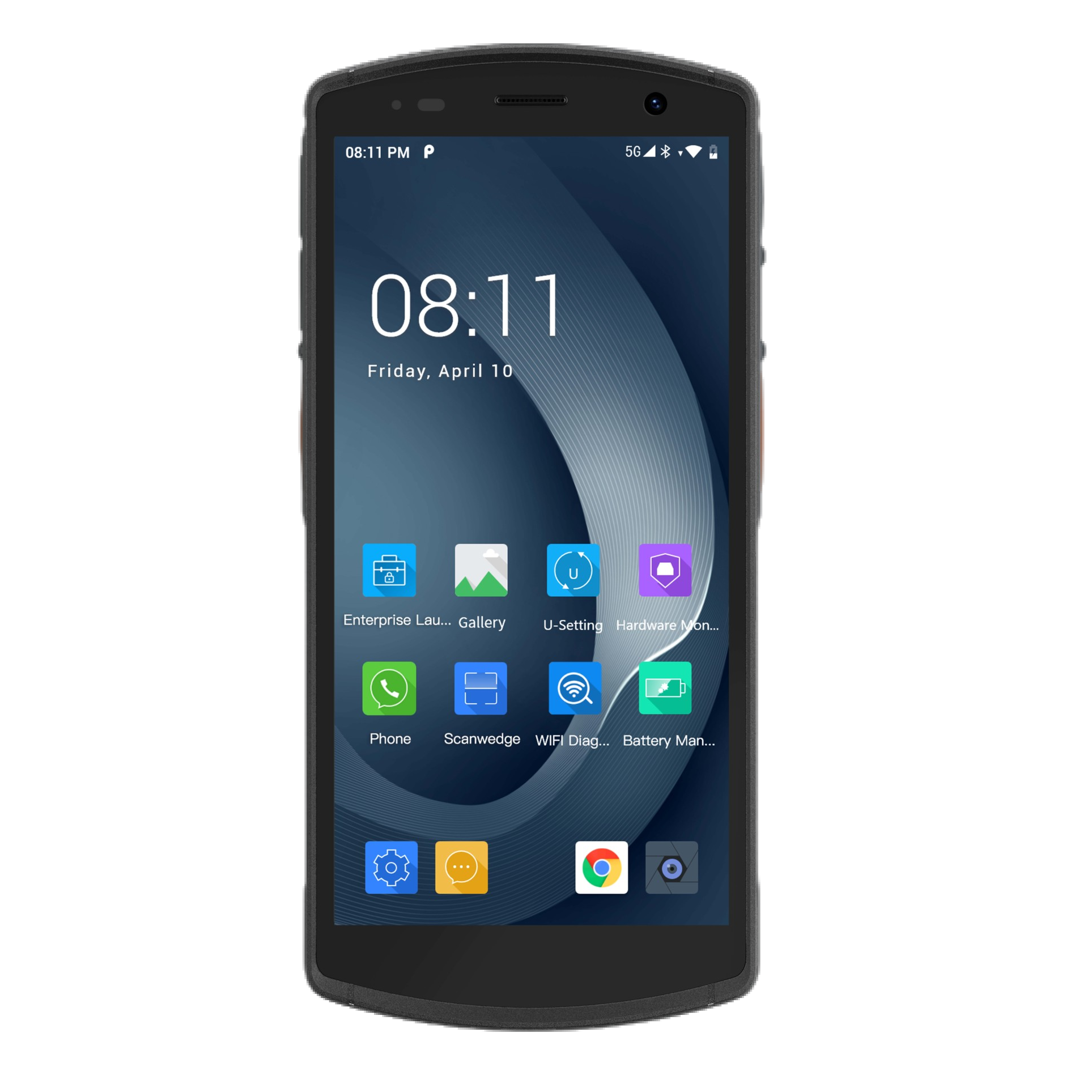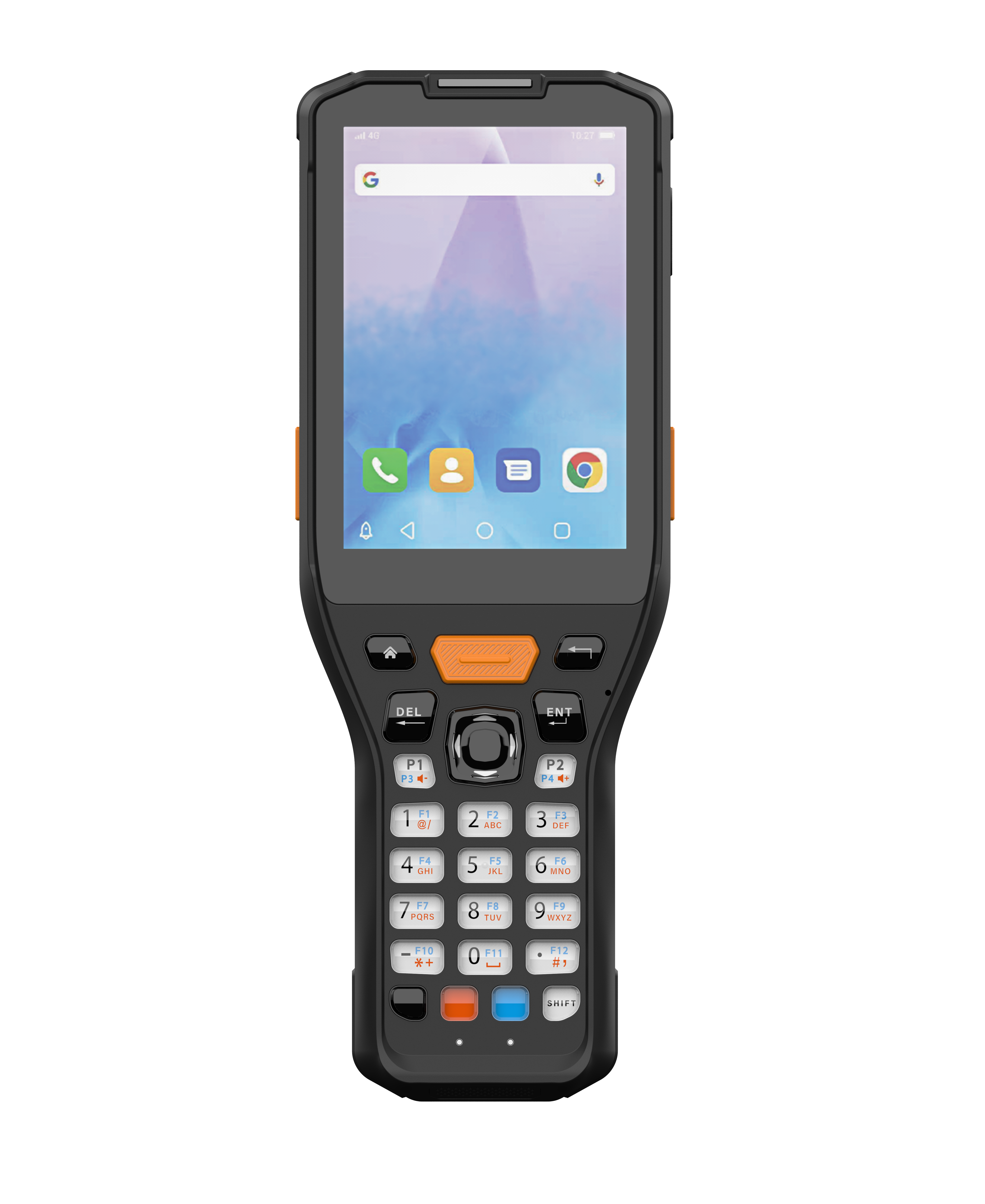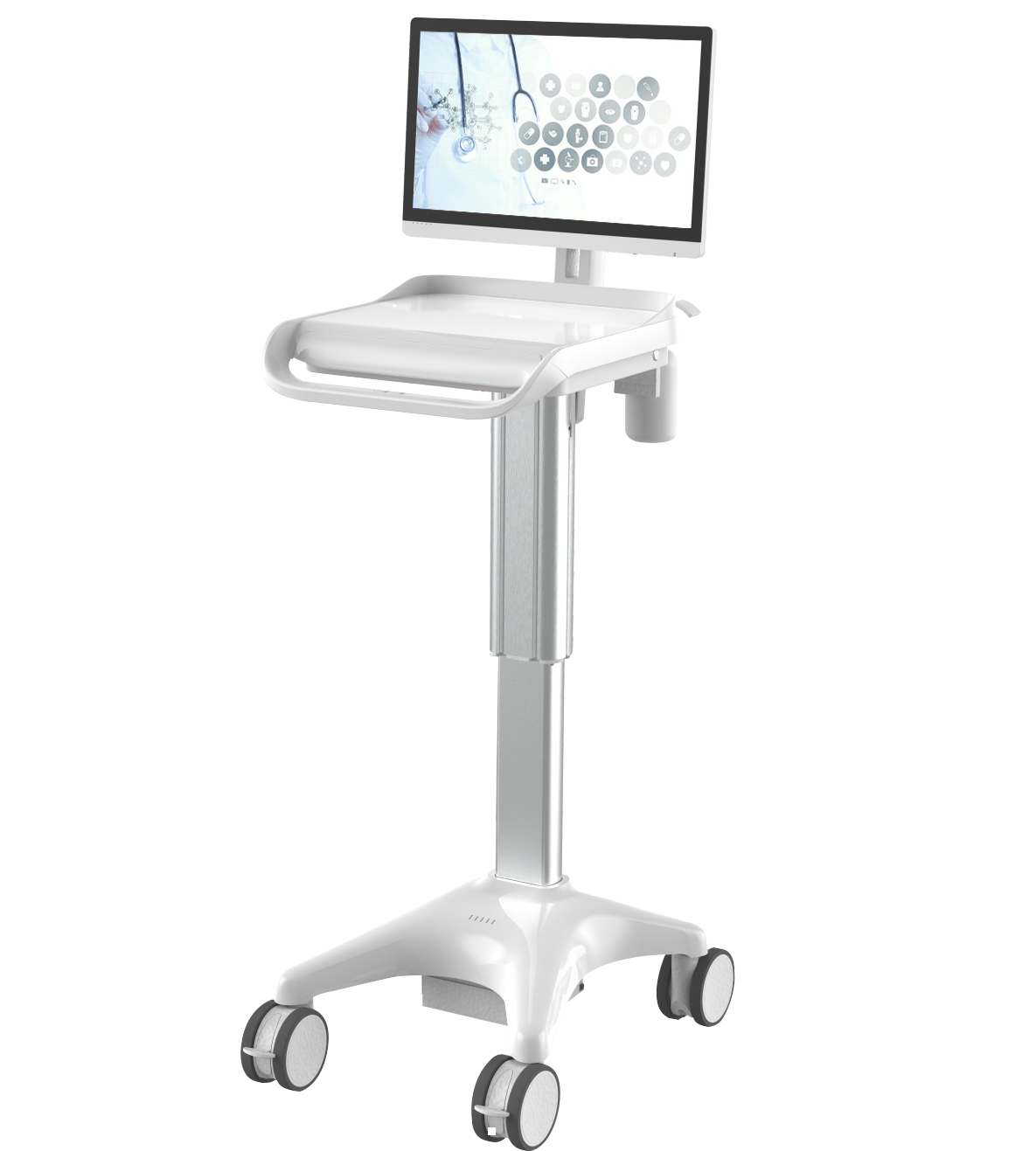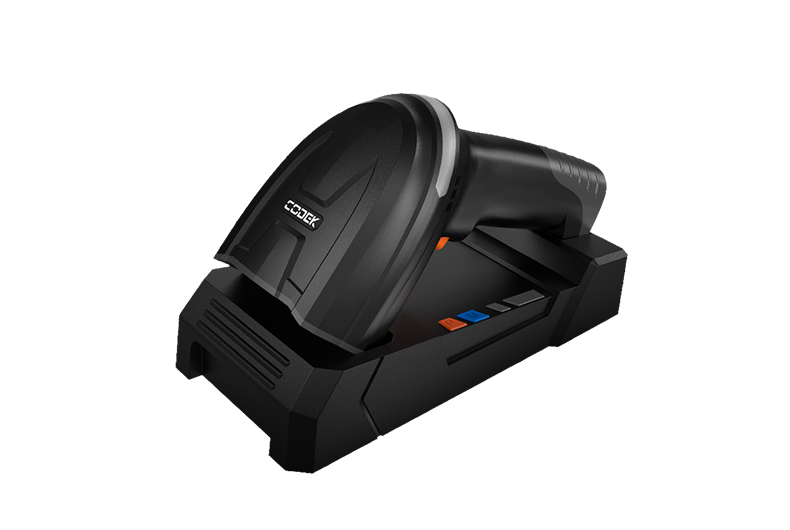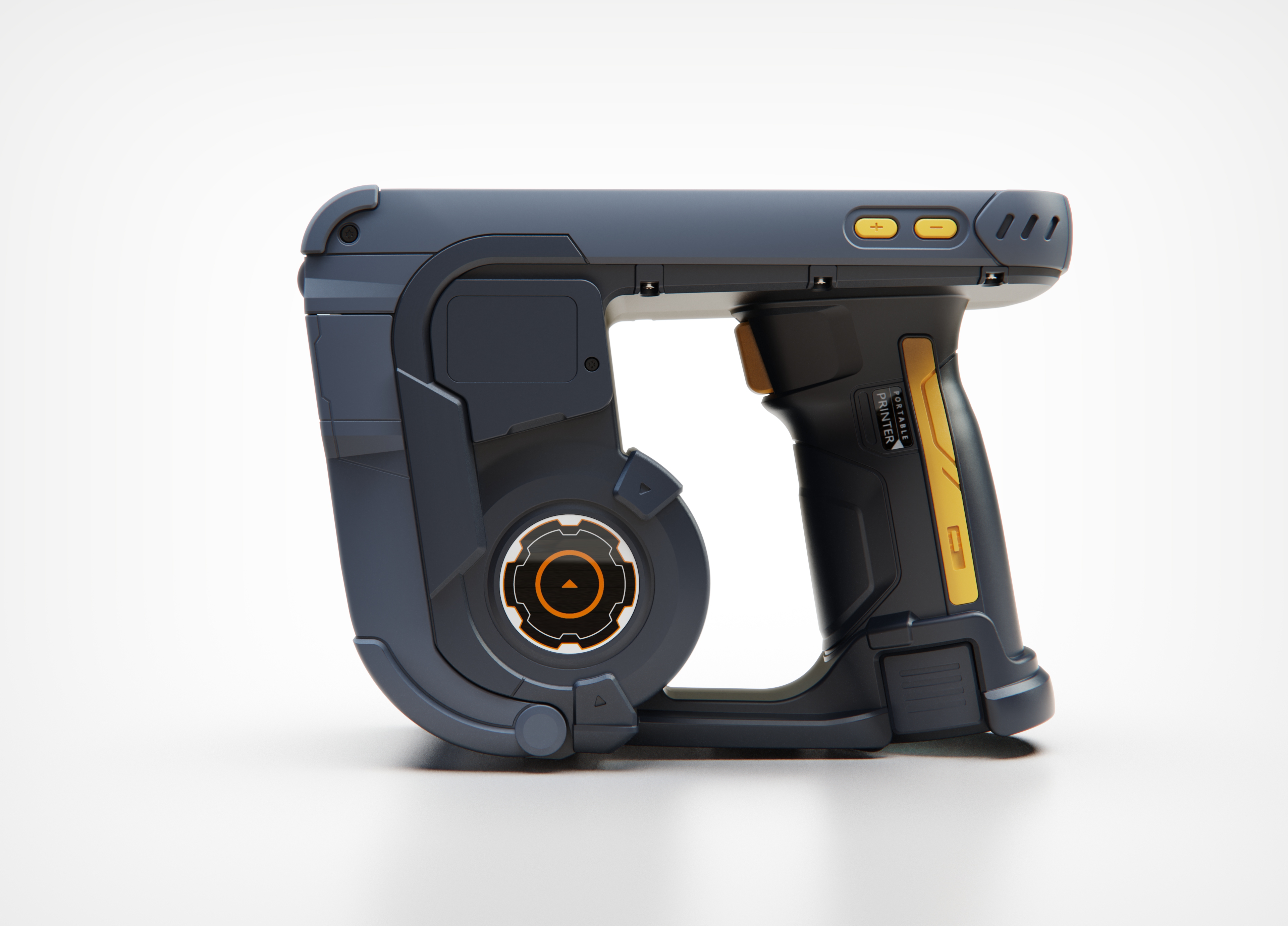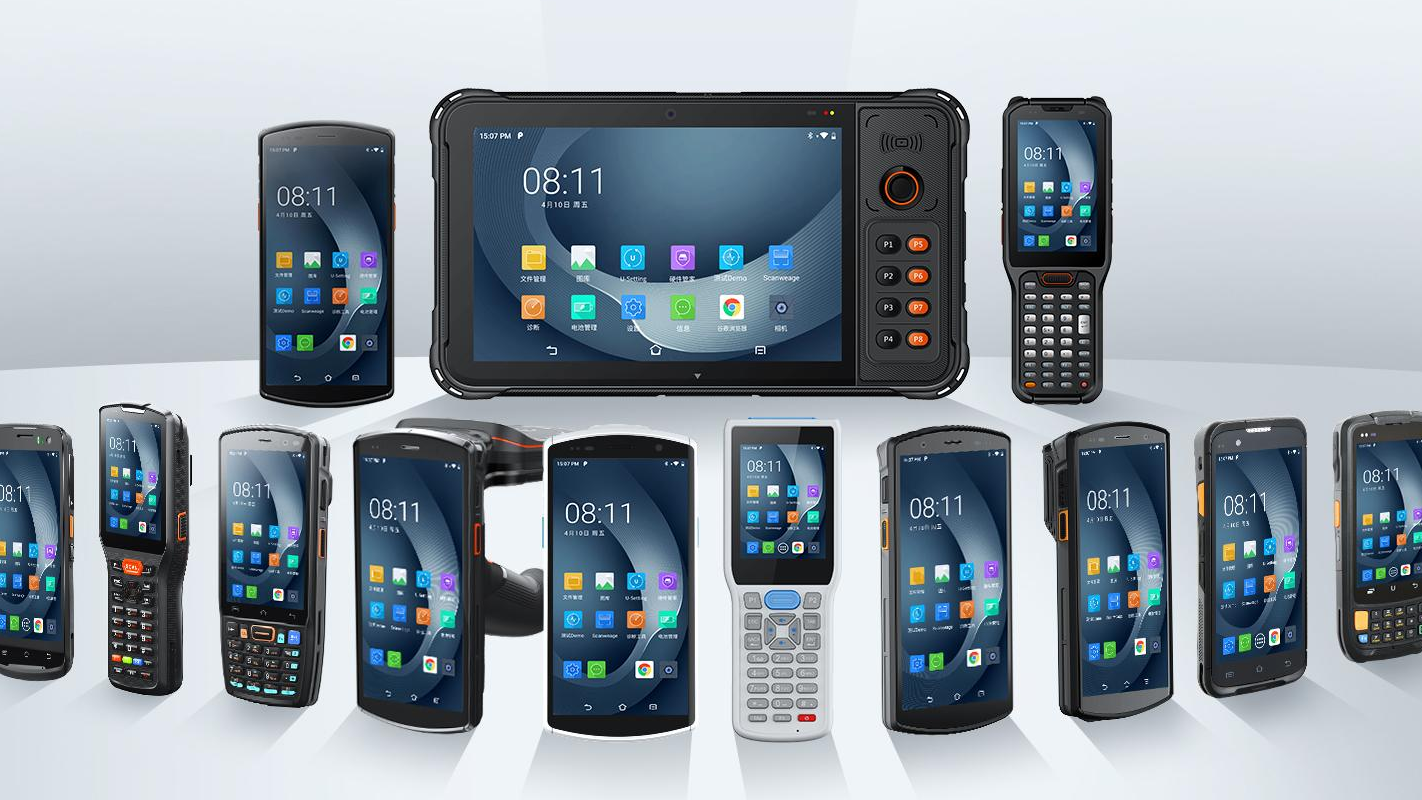Transforming Logistics industry with Handheld Mobile Computers
In the dynamic world of logistics and supply chain management, advanced technology is reshaping the industry. At the forefront of this transformation are handheld mobile computers, often equipped with powerful mobile barcode scanners. This article explores the significant impact of these devices, examining their crucial role from the warehouse to the doorstep.
The Evolution of Handheld Mobile Computers
The evolution of handheld mobile computers in the logistics sector has been a transformative journey, marked by technological advancements and a continuous drive for improved efficiency. These portable devices have become essential tools for logistics professionals, offering a diverse set of functionalities that go beyond basic data collection. One of the key components that have contributed to their indispensability is the integration of barcode scanner.
In the early stages, handheld mobile computers primarily focused on basic data capture using barcode scanning technology. These devices allowed for the swift and accurate capturing of product information, facilitating better inventory management and reducing human errors associated with manual data entry. This initial capability marked a significant leap forward in streamlining logistics processes and ensuring the accuracy of inventory records.
As technology progressed, handheld mobile computers evolved to incorporate RFID (Radio-Frequency Identification) technology. RFID brought an added layer of efficiency by enabling real-time tracking and identification of items without the need for direct line-of-sight scanning. This advancement proved particularly valuable in large-scale warehouses where quick and automated identification of items became crucial for efficient operations.
The software applications running on these devices have also undergone substantial improvements. Modern handheld mobile computers are equipped with robust and user-friendly software interfaces that offer a wide range of functionalities. These applications not only support barcode scanning and RFID capabilities but also integrate with other logistics systems, providing a comprehensive solution for supply chain management.
Supply chain visibility has emerged as a critical aspect of logistics, and handheld mobile computers have played a pivotal role in enhancing it. With the ability to capture, store, and transmit data in real-time, these devices contribute to a more transparent and responsive supply chain. Logistics professionals can now access up-to-date information about inventory levels, shipment statuses, and other critical data points, enabling them to make informed decisions promptly.
The form factor and durability of handheld mobile computers have also evolved to meet the demands of various industries. Rugged designs, resistant to dust, water, and drops, ensure that these devices can withstand the harsh conditions often encountered in logistics environments. Additionally, the ergonomic design of modern handheld mobile computers considers user comfort during extended periods of use, further enhancing the efficiency of logistics operations.
Streamlining Inventory Management with handheld mobile computers
Inventory management is a critical aspect of any business, and the accuracy of inventory data plays a pivotal role in the overall efficiency of operations. Traditional inventory management methods, relying on manual data entry or periodic physical counts, are prone to human errors and can result in inaccurate stock levels.
The integration of barcode scanners into handheld devices streamlines the entire inventory management process. These scanners enable the quick and efficient reading of product information by simply scanning the barcode associated with each item. This not only significantly reduces the time required for data entry but also minimizes the risk of errors, as manual data input is prone to mistakes such as typos or misinterpretation of product codes.
One of the key advantages of using handheld mobile computers is the ability to achieve real-time inventory tracking. As items are scanned, the information is instantly recorded and updated in the central inventory management system. This ensures that businesses have access to accurate and up-to-date information on stock levels at any given moment. Real-time inventory data is crucial for making informed decisions, such as timely restocking to prevent stockouts or adjusting orders to avoid overstocks.

The integration between handheld mobile computers and barcode scanners goes beyond the boundaries of the warehouse. These devices can be used throughout the entire supply chain, from receiving goods to shipping them out. The ability to track inventory movements at various stages ensures transparency and accountability. Businesses can pinpoint the exact location of products, monitor their transit, and identify any potential issues in the supply chain promptly.
Furthermore, the use of handheld mobile computers enhances overall operational efficiency. Employees can move freely within the warehouse or other facilities, scanning items without being tethered to a fixed workstation. This mobility not only accelerates the inventory management process but also reduces the likelihood of errors associated with manually recording data at a stationary point.
Enhancing Order Fulfillment with Mobile Computers
One of the key advantages of employing mobile computers in order fulfillment lies in their ability to streamline the picking process. Warehouse staff can use these devices to scan barcodes or RFID tags on products, providing real-time visibility into inventory levels and exact product locations. This not only minimizes errors associated with manual data entry but also accelerates the picking process, as employees can quickly locate and gather items for each order.
Furthermore, the connection of mobile computes with WMS ensures that each step in the fulfillment chain is meticulously tracked and recorded. This end-to-end visibility enables warehouse managers to monitor the status of orders in real time, identify bottlenecks, and make informed decisions to optimize the overall workflow. The result is a more responsive and agile fulfillment process that adapts to changing demands and minimizes delays.
The packing process is another stage where mobile computers prove invaluable. By scanning products at this stage, warehouse personnel can verify that the correct items are included in each order. Any discrepancies are instantly flagged, allowing for immediate corrective action. This not only reduces the likelihood of shipping errors but also enhances the quality control measures in place, contributing to higher customer satisfaction.
Real-Time Tracking and Visibility Enabled by Handheld Mobile Computers
Connectivity for Real-Time Updates:
The real magic happens when GPS technology is coupled with robust connectivity. Handheld devices equipped with cellular or Wi-Fi connectivity transmit real-time updates seamlessly. This connectivity ensures that logistics professionals and customers can access the latest information about their shipments instantaneously, fostering a sense of control and transparency.
Comprehensive Visibility Across the Supply Chain:
From the moment products leave the warehouse to their final destination, handheld mobile computers provide end-to-end visibility. This comprehensive oversight empowers logistics professionals to identify potential bottlenecks, optimize routes, and proactively address any challenges that may arise during transit.
Customer Empowerment and Satisfaction:
Real-time tracking transforms the customer experience by providing visibility into the entire shipping process. Customers can receive timely updates on the location and status of their orders, leading to increased satisfaction and trust. The ability to anticipate delivery times accurately also allows customers to plan accordingly, further enhancing their overall experience.
Proactive Decision-Making:
The real-time data provided by handheld mobile computers enables logistics professionals to make proactive decisions. In the event of unexpected delays, rerouting can be swiftly implemented to minimize disruptions. This agility in decision-making is crucial for maintaining the integrity of supply chain operations.
Optimizing Last-Mile Delivery Efficiency with Mobile Computers
The last mile of the delivery process, often the most challenging and costly, is optimized by handheld mobile computers. Drivers benefit from route optimization, delivery confirmations, and electronic proof of delivery, contributing to improved delivery efficiency, reduced operational costs, and faster delivery times.
Future Trends and Considerations for Handheld Mobile Computers
As technology advances, the role of handheld mobile computers is set to evolve further. Integration with emerging technologies like artificial intelligence (AI) and 5G holds the promise of enhanced efficiency and automation in supply chain processes.
Companies embracing these advancements should consider factors such as data security, device durability, and user training. A well-structured strategy, tailored to the unique needs of the business, can maximize the benefits of handheld mobile computers while mitigating potential challenges.
| Consideration | Description |
|---|---|
| Integration with AI | The fusion of handheld mobile computers with AI enables real-time data analysis, providing actionable insights for decision-making. This enhances operational efficiency and automation. |
| Enhanced Data Security | Robust data security measures, including end-to-end encryption, secure authentication, and regular updates, are crucial to safeguard sensitive information, especially in connected environments. |
| Device Durability and Adaptability | Ruggedized designs and materials ensure durability in challenging environments. Devices should also support firmware and software updates to stay adaptable to evolving technological landscapes. |
| User Training and Adoption | Comprehensive training programs are essential to empower users to leverage the full potential of handheld devices. This includes basic functionalities as well as advanced features enabled by AI. |
| Tailored Business Strategies | Crafting bespoke strategies aligned with the unique needs and goals of the business ensures effective integration of handheld devices. This involves analyzing existing processes and addressing specific challenges. |
Responsibilities and Challenge for Supplier
Urovo Technologies is a company known for its innovations in enterprise-level technology solutions, particularly in the field of mobile computing and data capture. Urovo's handheld mobile computers have had a significant impact on the logistics industry, bringing about improvements in efficiency, accuracy, and overall supply chain management. From optimizing inventory management to enhancing last-mile delivery, these devices are driving a transformative wave in logistics operations. As Urovo increasingly develop the potential of handheld mobile computers, the industry is poised for continued advancements, promising more efficient and reliable logistics solutions from the warehouse to the doorstep.









